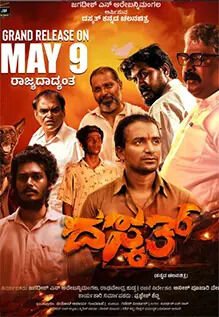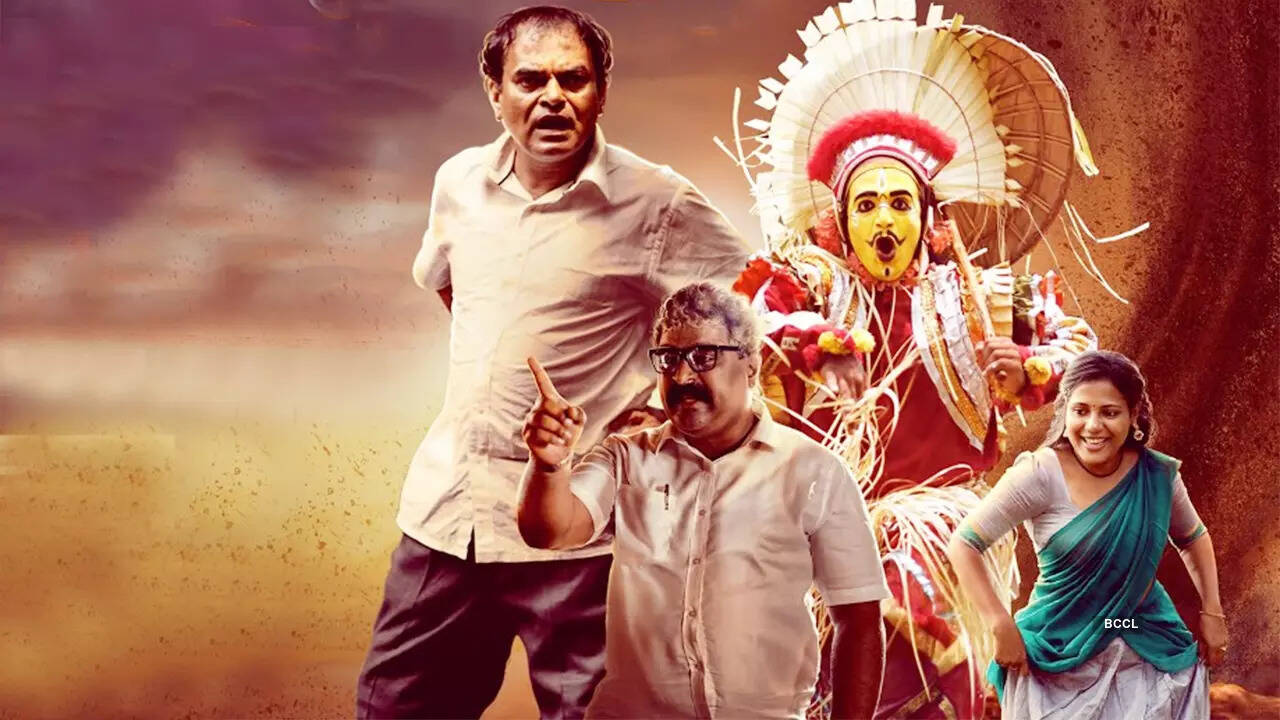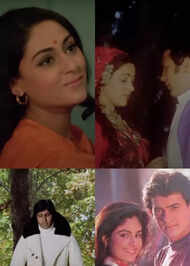
Synopsis
In the corrupt village of Kepula Palke, young Shekhar stands up against a cruel panchayat leader, sparking a fight for justice that changes the lives of everyone around him. Daskath is a powerful story about courage, hope, and the strength of the human spirit in the face of injustice.
Read MoreCast & Crew
Daskath Movie Review : A gritty portrait of power, resistance, and rural reality
Critic's Rating: 3.0/5
For a film to effectively tackle a serious issue, it needs a powerful antagonist—and Daskath delivers with one of the most memorable villains in recent times. Meet Yuva Shetty as Gunapaala: a monstrous caricature of unchecked power, with a bloated ego to match his bulging stomach. Always in a crisp white shirt and with a betel-stained mouth, he rules the panchayat like a deranged monarch—corrupt, cruel, and intolerant of anything that disturbs his twisted sense of order. He’s not just greedy; he’s pathologically opposed to discomfort. From killing a bird that dirtied his bike to silencing a barking dog, Gunapaala is driven by a toxic superiority complex, determined to keep others beneath him in every possible way.
Opposing him is a fiery group of young men bent on disrupting his reign. At the centre is Shekhara (Deekshith), always in fight mode; Keshava (Mohan), torn by family duties; Baadu, entangled romantically with Gunapaala's daughter Baagi (Bhavya Poojary); and Deepu, a spirited youngster immersed in the village's cultural life. Each member of this tight-knit gang has a personal stake in the chaos created by Gunapaala. The film hinges on the idea that a single official signature—Daskath—could solve many of the villagers' problems. But in a system riddled with socio-political and cultural hurdles, the real question is: do they have the courage to stand up to the monster in power?
Aneesh Poojary steers the film with clarity and conviction. The narrative captures the day-to-day reality of a remote village with striking realism—its culture, traditions, beliefs, and the challenges faced across generations. Without ever feeling preachy, the film weaves in multiple social issues with subtlety and sensitivity. While the pace dips occasionally, Aneesh restores momentum through well-timed surprises that re-engage the viewer.
Two standout highlights are the background score and casting. The music, rooted in local flavour, brings emotional depth and energy to key moments. The casting is impeccable—naturalistic performances make it feel like the characters truly belong in the village. Visually, the film beautifully captures the lush, rustic essence of Kepulapalke.
Daskath follows in the footsteps of regional gems like Kantara, Garuda Gamana Vrishabha Vahana, and Ulidavaru Kandanthe, showcasing Karavali's unique culture—from Daiva traditions to Hulivesha dance. Though its ambition to address numerous social issues leaves some threads unresolved, this open-endedness may be its boldest statement—reflecting rural life's messy, unfinished realities. For those who value grounded storytelling rooted in place, Daskath is a must-watch.
By Susmita Sameera
Opposing him is a fiery group of young men bent on disrupting his reign. At the centre is Shekhara (Deekshith), always in fight mode; Keshava (Mohan), torn by family duties; Baadu, entangled romantically with Gunapaala's daughter Baagi (Bhavya Poojary); and Deepu, a spirited youngster immersed in the village's cultural life. Each member of this tight-knit gang has a personal stake in the chaos created by Gunapaala. The film hinges on the idea that a single official signature—Daskath—could solve many of the villagers' problems. But in a system riddled with socio-political and cultural hurdles, the real question is: do they have the courage to stand up to the monster in power?
Aneesh Poojary steers the film with clarity and conviction. The narrative captures the day-to-day reality of a remote village with striking realism—its culture, traditions, beliefs, and the challenges faced across generations. Without ever feeling preachy, the film weaves in multiple social issues with subtlety and sensitivity. While the pace dips occasionally, Aneesh restores momentum through well-timed surprises that re-engage the viewer.
Two standout highlights are the background score and casting. The music, rooted in local flavour, brings emotional depth and energy to key moments. The casting is impeccable—naturalistic performances make it feel like the characters truly belong in the village. Visually, the film beautifully captures the lush, rustic essence of Kepulapalke.
Daskath follows in the footsteps of regional gems like Kantara, Garuda Gamana Vrishabha Vahana, and Ulidavaru Kandanthe, showcasing Karavali's unique culture—from Daiva traditions to Hulivesha dance. Though its ambition to address numerous social issues leaves some threads unresolved, this open-endedness may be its boldest statement—reflecting rural life's messy, unfinished realities. For those who value grounded storytelling rooted in place, Daskath is a must-watch.
By Susmita Sameera
No showtimes available
Popular Movie Reviews
Next Movie Review







































































































































 Aneesh Poojary VenoorDirector
Aneesh Poojary VenoorDirector Deekshith K AndinjeActor
Deekshith K AndinjeActor Mohan SheniActor
Mohan SheniActor





















0/5